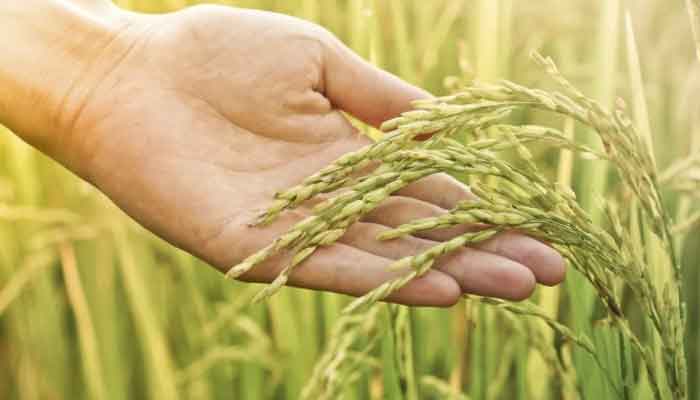TCP plans setting up rice cleaning, processing mills in Karachi
KARACHI: The Trading Corporation of Pakistan (TCP) has planned to setup rice cleaning, processing and milling units in Karachi in partnership with the private sector, an official said.
“In this regard, TCP would provide cemented buildings and structures at National Highway and Landhi Industrial Area to the interested parties on rental basis,” the official said. Trading in rice both in domestic and international markets has become more quality conscious, even in the local markets buyers now demand quality rice.
“In order to meet the challenges under the WTO (World Trade Organisation) regime, it is now very essential for the country to put together its rice production and marketing strategies to match the demand of the international markets,” the official said.
According to the Pakistan Bureau of Statistics (PBS), the country’s overall rice exports in the year ended June 30, 2019 clocked in at $2.069 billion, up 1.67 percent against the exports of $2.035 billion in the previous year. Some 537,133 tons basmati rice and 3.545 million tons other varieties of rice were exported from the country. Pakistan earned $2.074 billion in FY19 up from $ 2.035 billion, showing 2 percent compared to last year.
Rice is Pakistan’s third largest crop in terms of area sown, after wheat and cotton. About 11 percent of Pakistan’s total agricultural area is under rice. Pakistan is a leading producer and exporter of Basmati and IRRI rice (white long grain rice). Rice ranks second among the staple food grain crops in Pakistan and exports are a major source of foreign exchange earnings.
The country grows a relatively high quality of rice to fulfil domestic and export demand. Traditionally, 40 to 45 percent of the crop is used for local consumption, with the balance exported.
According to a report issued by the Trade Development Authority of Pakistan (TDAP), the milling industry made significant investments in state-of-the art processing machinery, but Pakistan exports most of its rice in bulk with no modern packaging and branding.
“Export companies could be doing more to develop brands and a more significant presence in foreign markets,” the TDAP report said. The export industry was comprised of a large number of relatively small firms which were often family-run and accustomed to traditional trading practices.
“However, that is changing and Pakistan’s rice exporters are becoming increasingly active advocates for their industry and their trade interests. With time, the industry is expected to adopt more strategic and brand-based approaches to rice exporting,” it concluded.
-
 Winter Olympics 2026: Lindsey Vonn’s Olympic Comeback Ends In Devastating Downhill Crash
Winter Olympics 2026: Lindsey Vonn’s Olympic Comeback Ends In Devastating Downhill Crash -
 Adrien Brody Opens Up About His Football Fandom Amid '2026 Super Bowl'
Adrien Brody Opens Up About His Football Fandom Amid '2026 Super Bowl' -
 Barbra Streisand's Obsession With Cloning Revealed
Barbra Streisand's Obsession With Cloning Revealed -
 What Did Olivia Colman Tell Her Husband About Her Gender?
What Did Olivia Colman Tell Her Husband About Her Gender? -
 'We Were Deceived': Noam Chomsky's Wife Regrets Epstein Association
'We Were Deceived': Noam Chomsky's Wife Regrets Epstein Association -
 Patriots' WAGs Slam Cardi B Amid Plans For Super Bowl Party: She Is 'attention-seeker'
Patriots' WAGs Slam Cardi B Amid Plans For Super Bowl Party: She Is 'attention-seeker' -
 Martha Stewart On Surviving Rigorous Times Amid Upcoming Memoir Release
Martha Stewart On Surviving Rigorous Times Amid Upcoming Memoir Release -
 Prince Harry Seen As Crucial To Monarchy’s Future Amid Andrew, Fergie Scandal
Prince Harry Seen As Crucial To Monarchy’s Future Amid Andrew, Fergie Scandal -
 Chris Robinson Spills The Beans On His, Kate Hudson's Son's Career Ambitions
Chris Robinson Spills The Beans On His, Kate Hudson's Son's Career Ambitions -
 18-month Old On Life-saving Medication Returned To ICE Detention
18-month Old On Life-saving Medication Returned To ICE Detention -
 Major Hollywood Stars Descend On 2026 Super Bowl's Exclusive Party
Major Hollywood Stars Descend On 2026 Super Bowl's Exclusive Party -
 Cardi B Says THIS About Bad Bunny's Grammy Statement
Cardi B Says THIS About Bad Bunny's Grammy Statement -
 Sarah Ferguson's Silence A 'weakness Or Strategy'
Sarah Ferguson's Silence A 'weakness Or Strategy' -
 Garrett Morris Raves About His '2 Broke Girls' Co-star Jennifer Coolidge
Garrett Morris Raves About His '2 Broke Girls' Co-star Jennifer Coolidge -
 Winter Olympics 2026: When & Where To Watch The Iconic Ice Dance ?
Winter Olympics 2026: When & Where To Watch The Iconic Ice Dance ? -
 Melissa Joan Hart Reflects On Social Challenges As A Child Actor
Melissa Joan Hart Reflects On Social Challenges As A Child Actor




